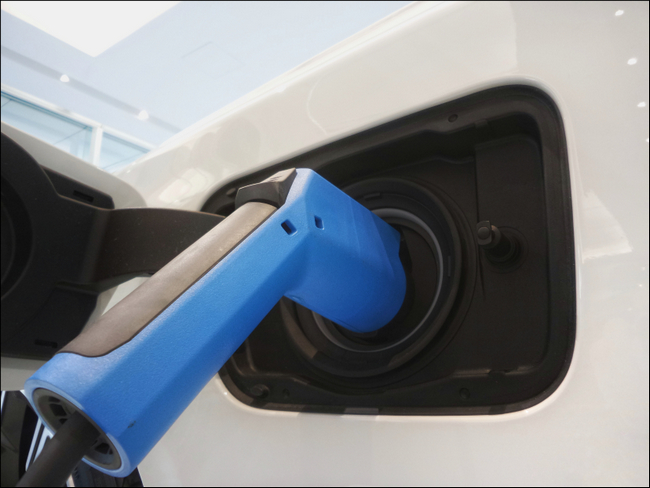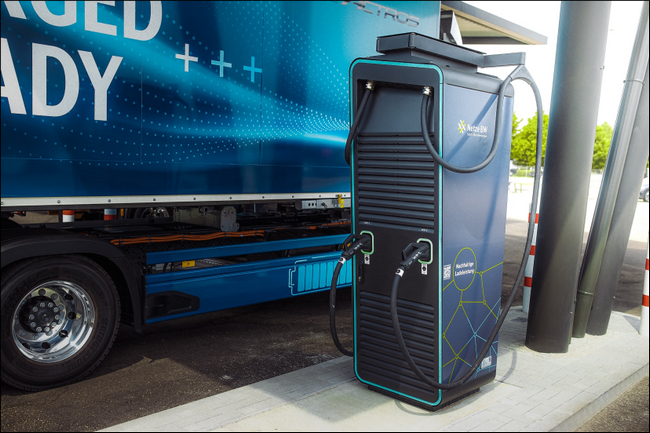Research by the RAC has revealed that the government is unlikely to meet its target of having six or more rapid or ultra-rapid electric vehicle chargers at every motorway service area in England by the end of 2023. So how does the land lie for the much larger, heavy-duty commercial vehicles that require infrastructure for high-power charging stations? Here, Roger Brereton, Head of Sales at steering system specialist at Pailton Engineering, discusses how to implement infrastructure more quickly.
~ It’s not only cars that require sufficient electrification infrastructure ~
ACEA, the European Automobile Manufacturers’ Association, estimates that trucks in the EU27 + UK region will need 10,000 – 15,000 higher power public and destination charging points by 2025, and 40,000 – 50,000 by 2030. By this latter date, ACEA also estimates that there should be 40,000 lower-power public overnight chargers at truck parking areas.
The need for these charging stations is reinforced by the fact that approximately 40,000 battery electric medium and heavy‐duty vehicles will be in operation in Europe in 2025. This figure is expected to rise to 270,000 by 2030.

Unfortunately, the infrastructure that is required to charge these larger electric vehicles is almost nonexistent today. This is despite a new law agreed by the European Union promising that 3,600 kW of truck charging capacity every 60 km will be installed along the EU’s primary motorways by 2030.
Unlike cars, commercial vehicles such as buses and trucks cannot use the existing infrastructure. Instead, dedicated high-power charging stations, commonly known as direct current (DC) fast chargers or superchargers, are needed to deliver high-voltage DC directly to the vehicle's battery.
Speeding up infrastructure implementation
As ACEA argues, the shortage of commercial vehicle infrastructure must be tackled urgently, with policymakers needing to take action to ensure a rapid infrastructure roll‐out.
The plan is to ensure adequate public charging by 2030. The Alternative Fuel Infrastructure Regulation (AFIR), a part of the EU’s “Fit for 55” regulatory action to make EU policies fit for reducing net greenhouse gas emissions by 55 per cent by 2030, states that there will be four charging stations in each designated safe and secure truck parking area.
Although it could be argued that the regulation has not gone far or fast enough, it must be acknowledged that it does provide manufacturers with a useful basis for their infrastructure roadmaps.

Bridging the gap
Due to the current rate of installation, heavy-duty original equipment manufacturers (OEMs) cannot wait for the charging challenge to solve itself. As result, companies should undertake a proactive study of their customers’ charging requirements, evaluate potential business models for strategic fit and then create an implementation roadmap for their chosen model.
Of course, customers will not obtain true peace of mind until charging anxieties are resolved. Fortunately, this risk can be somewhat accommodated for, by using route planning and battery monitoring services in the context of adequate charging infrastructure.
These monitoring services can provide real-time information about the availability and speed of charging stations along the planned route. This data can also be integrated into the route planning service, allowing drivers and fleet managers to make informed decisions about where to charge, helping to minimise wait times and optimise charging schedules.
With that said, the infrastructure that is required to charge these larger, heavy-duty electric vehicles is almost nonexistent, but there are policies in place to counteract this issue.
For charging stations in each designated safe and secure truck parking area to be installed by 2030, a rapid rollout needs to happen fast. Until now, it seems that the infrastructure for these larger vehicles has been somewhat ignored in the transition to e-mobility.
For more information about Pailton Engineering’s custom engineering for commercial vehicles, visit the www.pailton.com or call +44 (0)2476 680445.
About Pailton Engineering: Pailton Engineering Ltd design, test and deliver world class steering systems, using state of the art CAD (Solid Works), purpose designed and built test facilities, and state of the art manufacturing capability.
